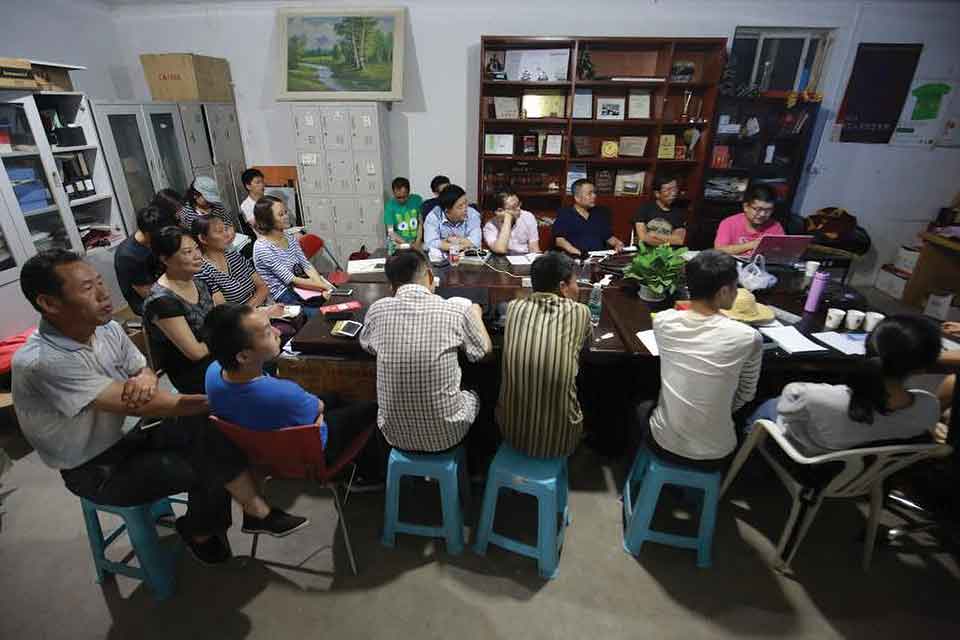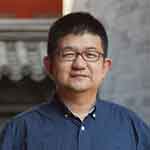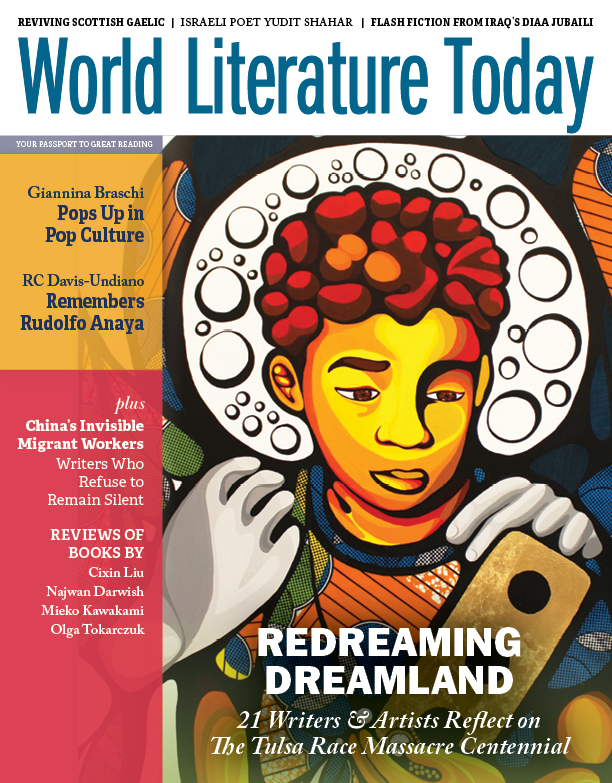New Workers’ Literature

The Picun Literature Group has independently printed eight volumes of Picun literature since 2015 and released four volumes of the bimonthly literary magazine New Workers’ Literature (Xin gongren wenxue) in electronic form since 2019. In his preface to the inaugural issue of New Workers’ Literature, Peking University professor Zhang Huiyu, who is also the leading mentor of the Picun Literature Group, explains the meaning and significance of “New Workers’ Literature” in relation to twentieth-century Chinese history and global capitalism.
In late April 2017, domestic worker Fan Yusu’s essay “I Am Fan Yusu” went viral on the Chinese social media app WeChat, reaching almost four million pageviews within a few days. This has brought to the limelight the Picun Literature Group, a group of migrant workers living in the outskirts of Beijing, who love literature and spend their weekends learning and discussing literature with volunteers from the city. Fan Yusu is a member of this amateur literary group.
The mainstream media often call the literary works produced by those migrant workers “migrant workers’ literature,” “subaltern literature,” or “grassroots literature.” These terms make sense, but I personally prefer the term “New Workers’ Literature” for the following reasons. First, “worker” is not only a professional category; in twentieth-century China, workers were the political agents of the socialist nation. Second, as Chinese workers became the historical and national agents in the last century, notions such as labor, work, and production were no longer associated with negative implications like coolie and low social status, but instead assumed positive connotations in the society. Labor was endowed with honor and aesthetic value. Third, the new workers are different from the old workers. Both old and new workers engage in industrial production, but the old worker was a screw, epitomized in the Lei Feng spirit, in the enterprise owned by the whole people; whereas the new workers become insignificant and disposable in private capital and foreign capital enterprises. The new worker is “a screw fallen to the ground,” as the migrant worker Xu Lizhi wrote in his poem. Fourth, new workers include not only industrial workers but also subaltern laborers in the service sector in the city, such as domestic workers and couriers. The term “new workers” can be used to emphasize migrant workers’ dissociation from agricultural production. Fifth, by including the word “worker” in the term, I intend to situate these literary works against the backdrop of twentieth-century China. As early as the 1930s, some Chinese educators were already committed to the education of the laborers. In the 1940s and 1950s, massive literacy campaigns and writers’ schools gave rise to a group of worker-peasant-soldier writers. The Migrant Workers’ Literature or New Workers’ Literature that emerged in the 1990s exists in the same historical context of civilian education, grassroots culture, and mass culture.
The New Workers’ Literature is new for three reasons: it has a new creative subject, namely, the new workers, or at least writers who used to be new workers; it manifests the workers’ awareness of their own identity, as they embrace the socialist idea “labor creates the world” to reflect on and criticize modern culture and industrialization; it is future-oriented, as the new workers seek a more fair and just modern world and human civilization. In this sense, the New Workers’ Literature is not simply a genre of a specific group’s literary output; it is a typical literary expression in response to the crisis of modernity.
I have read many stories written by the new workers. Those firsthand, eyewitness stories tell us about the lives of the new workers and can be read as literary testimonials of their historical position in our era. Literature is the new workers’ medium to depict modern life and represent their individual experiences as well as their platform for public discussions and debates. In the name of literature, the New Workers’ Literature presents new workers’ lives and values, revealing the other side of China’s industrial production and urban space; it is thus an integral part of the story of China and the Chinese experience.
Translation from the Chinese












